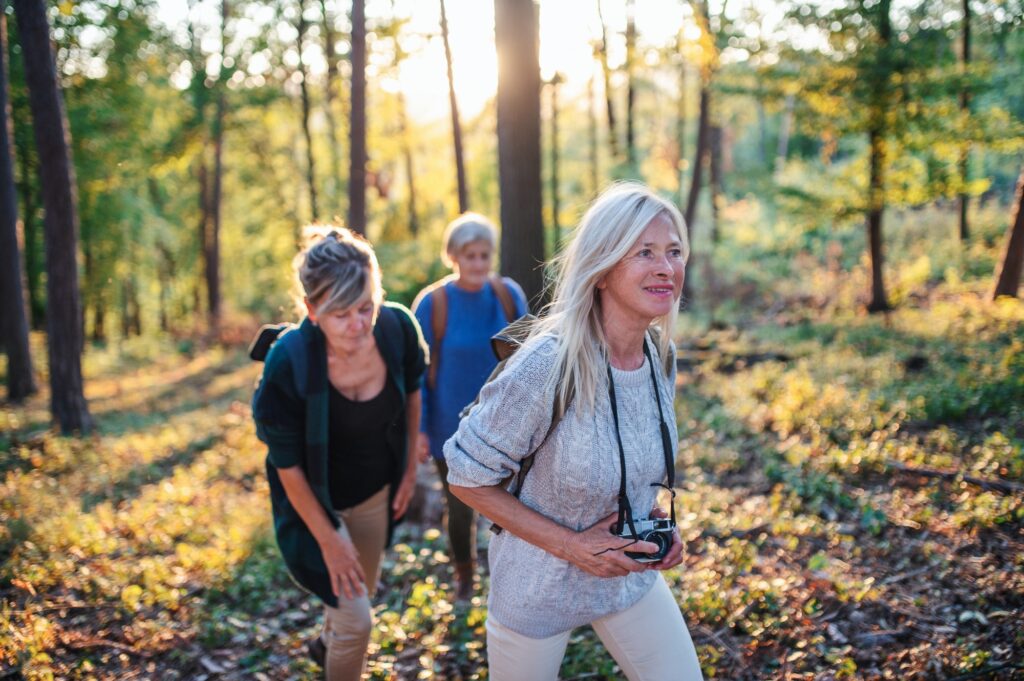Encouraging seniors to spend more time outdoors can have numerous benefits for their physical and mental well-being. Here are some suggestions to help get a senior outdoors more:
- Communicate the benefits: Talk to the senior about the advantages of spending time outdoors, such as fresh air, vitamin D from sunlight, increased mobility, improved mood, and opportunities for social interaction.
- Plan outdoor activities together: Engage the senior in planning outdoor activities that align with their interests and abilities. Consider activities like walking, gardening, birdwatching, picnicking, or visiting local parks. Involve them in the decision-making process to ensure they feel a sense of ownership.
- Set a routine: Establish a regular schedule for outdoor time. Having a consistent routine can make it easier for seniors to incorporate outdoor activities into their daily lives. Set specific times or days for outdoor outings or walks to create a habit.
- Accommodate mobility challenges: Be mindful of any mobility limitations the senior may have and plan activities accordingly. Choose locations with accessible paths, provide assistive devices like walking aids if needed, or consider gentle exercises that can be done outdoors.
- Offer companionship: Seniors may be more motivated to spend time outdoors if they have someone to accompany them. Offer to join them for walks, outings, or even sitting together in the backyard. The presence of a companion can provide support and enhance the enjoyment of outdoor activities.
- Make it social: Encourage the senior to invite friends, family members, or other seniors to join them for outdoor activities. This can create a sense of community and make outdoor experiences more engaging and enjoyable.
- Explore local resources: Research local community centers, senior centers, or recreational programs that offer outdoor activities specifically designed for seniors. These organizations often organize group outings, nature walks, or other outdoor events tailored to the needs and interests of older adults.
- Consider nature therapy: Nature-based therapies, such as horticultural therapy or ecotherapy, can be particularly beneficial for seniors. Look for programs in your area that provide opportunities for seniors to engage with nature as part of their therapy or wellness initiatives.
- Make the outdoors accessible at home: If the senior has limited mobility or prefers staying close to home, create an inviting outdoor space. Set up comfortable seating areas, plant flowers or a small garden, and provide shade for sunny days. This can encourage them to spend more time outdoors and enjoy nature from the comfort of their own home.
- Be patient and supportive: Some seniors may be resistant or hesitant to spend time outdoors due to various reasons, such as health concerns or lack of interest. Be patient, understanding, and supportive in your approach. Start with short outings or activities and gradually increase the duration or intensity based on their comfort level.
Remember, it’s essential to respect the senior’s preferences and limitations. By being encouraging, understanding, and creative, you can help them discover the joys and benefits of spending more time outdoors.







